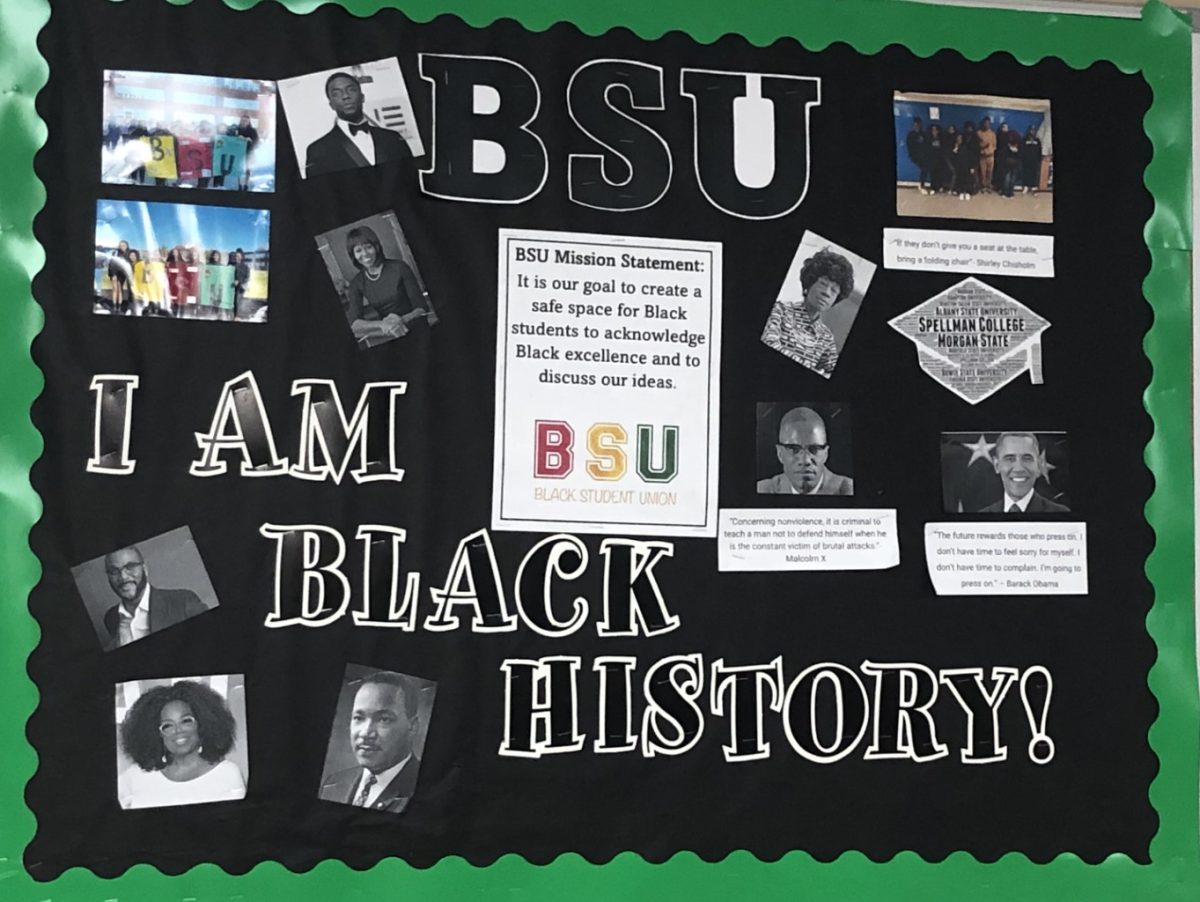Black voices have a history in our history of being overlooked. One might question why there’s a month to recognize them, but dedicating a month to them and adding their stories into the curriculum helps inform generations about all the hard work and struggles black people have experienced.
To understand Black History month, we must understand where it comes from. Almost 50 years ago, Carter. G. Woodson founded the first Black History Month. However, back in 1926, Carter and a group of scholars had the idea to create a week dedicated to honoring Black people and heroes, called, “Negro History Week.” The week was to be held in all public schools for a week to teach others, aiming to expand the nation’s knowledge and uplift Black communities. Recognizing that one week was not long enough to celebrate the history of black individuals, President Gerald Ford extended Negro History Week to Black History Month in February 1976. February was chosen as the month for several reasons. Both Abraham Lincoln and Frederick Douglass had birthdays within the second week of February. Even before this, February was a time African Americans customarily celebrated to honor Emancipation. Black History month is also celebrated in Canada, while the UK and Ireland celebrates it in October (Taylor).
This expansion of Black History month encouraged many Americans to learn more about the many accomplishments of Black heroes who have contributed to making America a better place– figures like Rosa Parks, Bayard Rustin, Alice Coachman, and Shirley Chisholm. There were many Black heroes from the 20th century who helped change America to become a better and more peaceful place on Earth.
One example of a Black hero was Rosa Parks. She was mistreated when she boarded on a segregated bus, and the bus driver demanded that Rosa get off the bus. However, Rosa Parks refused to comply because it was unfair for Black people and White people to be separated on buses. Before being released from jail, Rosa joined the group of indicted boycott leaders. On December 6, 1955, a boycott began in response to the segregation of Black people on buses. This boycott continued until December 21, 1956. Unfortunately, during the boycott, Rosa lost her job, and despite her efforts, she couldn’t find employment in Montgomery. Consequently, Rosa and her family moved to Detroit in search of job opportunities (Kettler).
Another example of a Black hero who changed America was Bessie Coleman. As a child, she dreamed of flying an airplane. Unfortunately, discrimination during her lifetime prevented Bessie and other Black girls from pursuing this dream. Discrimination didn’t thwart Bessie from achieving her goal. She studied diligently and worked as a manicurist to save money. Once she earned enough money, she traveled to France to take airplane lessons, which also required her to learn French. After Bessie finally learned to fly an airplane, she went on to teach other Black women how to fly as well (Alexander).
Some may question should there be a month dedicated to other people of color as well? Many other minority races also are not portrayed in the media as much or celebrated for their contributions to America. While it’s true that other voices may not have faced the same level of oppression as much as Black voices, this shouldn’t diminish the importance of highlighting their experiences. All voices should be heard, and individuals from all backgrounds should be portrayed in the media as more than just stereotypes. Their achievements should be celebrated and recognized without facing unreasonable pushback.
For events happening in school here at KHS during Black History Month, Ms. Williams, a curator for the Black Student Union, shared, “Our Black Student Union has an upcoming open mic night and is decorating bulletin boards around the building.” An open mic event can serve as a platform to introduce and incorporate poetry about Black figures. Black people should have opportunities for events and places dedicated to enriching our culture, achievements, and future.
Unfortunately, there are few places dedicated to telling stories about black people that don’t revolve around slavery. While it’s important to acknowledge the horrors of slavery, every mention of Black people doesn’t have to focus solely on their suffering; their achievements and underappreciated figures deserve recognition too. Although there is only one month to highlighting Black History, integration of Black and minority voices in the school curriculum are as important as ever.
Kenwood History teacher Ms.Fallon, highlights the importance of integrating Black history year round into the school curriculum. She advocates for including a Black History Month (BHM) project within social studies, stating, “We’ll talk about important black figures, and the project consists of research and diving deeper into black figures from a list of choices or their own.”
Teachers strive to ensure that Black history is integrated into the curriculum throughout the year to empower students. While different classes may differ in how they might incorporate Black History, our school, like many others, includes daily Black History facts. These projects focusing on black figures can help students with researching and fact-checking, shedding light on both well-known and lesser-known individuals while giving black figures a voice.
So, who is your favorite Black hero, and how did they contribute to making the world a better place? How many years did it take for them to accomplish their goals? Did your favorite Black hero have any children or get married during their lifetime?
Citations:
Alexander, Kerri Lee. (2022, December). Bessie Colemen 1892-1926. National Women’s History Museum. https://www.womenshistory.org/education-resources/biographies/bessie-coleman
Kettler, S. (2020, December 1). Rosa Parks: Timeline of Her Life, Montgomery Bus Boycott and Death. Biography. https://www.biography.com/activists/rosa-parks-timeline-facts
Taylor, M. E. (2023, February 1). The story of how Negro History Week became Black History Month. Face2Face Africa. https://face2faceafrica.com/article/the-story-of-how-negro-history-week-became-black-history-month






